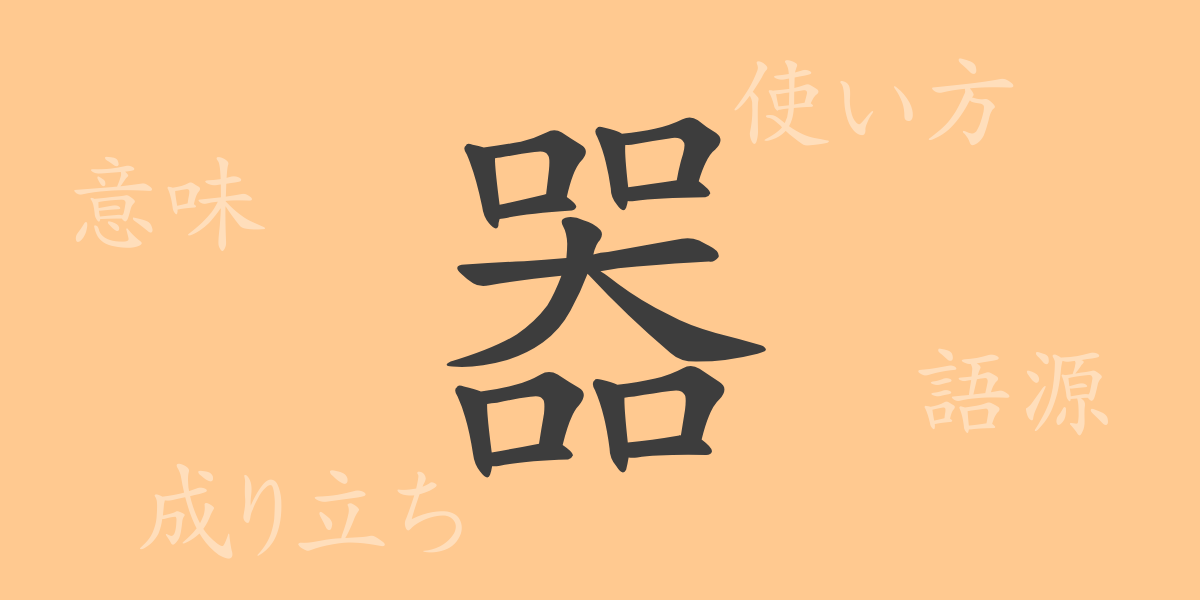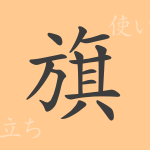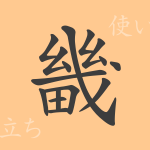The Japanese language contains countless kanji, each with deep meanings and rich histories. The kanji “器” (utsuwa) is no exception. Frequently used in daily life, this character holds expressions that go beyond merely naming objects. This article delves into the origin, readings, meanings, usage, and even the idioms and proverbs associated with “器” (utsuwa) to uncover its charm.
Origin of the Kanji “器” (語源)
To explore the origin of the kanji “器” (utsuwa), we must look back to ancient China. Its prototypes can be seen in oracle bone script and bronze inscriptions, originally meaning “shaped object.” Its form, resembling three stacked mouths, symbolized containers and the skill of those who used them. Over time, this shape evolved into the refined form of “器” (utsuwa) we know today.
Meaning and Usage of “器” (utsuwa)
The kanji “器” (utsuwa) has a wide range of meanings and uses. Generally, it refers to containers for holding liquids or solids, but it extends beyond that. It is also used to express a person’s capability or capacity, as in “人の器” (hito no utsuwa). Additionally, it appears in metaphorical expressions like “大器晩成” (taiki bansei), meaning great talents mature late.
Reading, Stroke Count, and Radical of “器” (utsuwa)
The kanji “器” (utsuwa) has specific readings and structural components.
- Reading: The on-yomi (Chinese reading) is “キ” (ki), and the kun-yomi (Japanese reading) is “うつわ” (utsuwa).
- Stroke count: 15 strokes in total.
- Radical: The radical is “口” (kuchi, meaning mouth).
Idioms, Proverbs, and Expressions Using “器” (utsuwa)
Idioms, proverbs, and expressions that include “器” (utsuwa) are abundant in the Japanese language. For example, “器用貧乏” (kiyou binbou) describes someone skillful but living in poverty, and “器量がいい” (kiryō ga ii) praises not only physical appearance but also inner beauty. The phrase “小器もち” (shouki mochi) criticizes someone for being narrow-minded and fixating on trivial matters. These expressions deeply root in Japanese life, values, and interactions.
Summary on “器” (utsuwa)
The kanji “器” (utsuwa) carries diverse meanings and uses far beyond its simple form. It plays an important role in Japanese culture and language, helping people express and communicate their emotions and thoughts. Through this article, we hope you have gained a glimpse into the rich world of “器” (utsuwa).

























